- Home
- slideshows
- miscellaneous
- Critics are up in arms that the Trump administration is ripping children away from their parents at the border, but that's not necessarily what happens when kids enter the US
Critics are up in arms that the Trump administration is ripping children away from their parents at the border, but that's not necessarily what happens when kids enter the US
Who are these children, and how many of them are there?

What rights do unaccompanied minors have in the US, and how are they protected under the law?
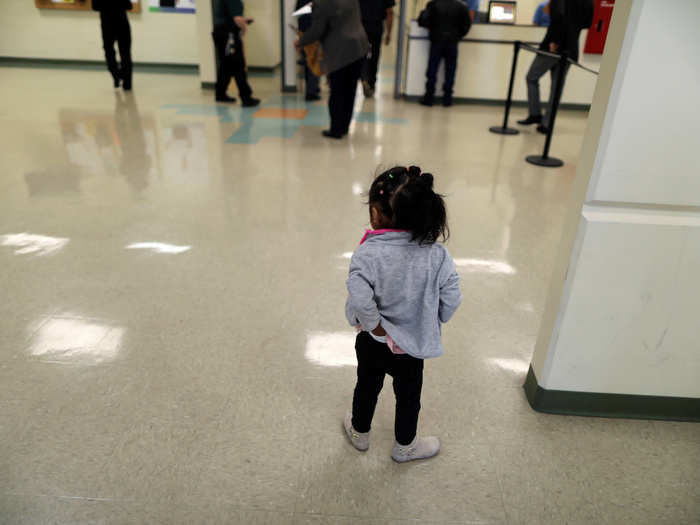
International and domestic law requires the US to ensure safe arrival and processing of refugees and asylum-seekers once they have escaped persecution or violence and reached the US. Some of the same rules apply to these unaccompanied minors.
According to a 2014 UN Refugee Agency report on 404 children from Guatemala, Honduras, and El Salvador, 58 percent had to flee "because they suffered or faced harms that indicated a potential or actual need for international protection."
Because of the threats the majority of these children were facing, they are not turned away at the border — instead, they are permitted to enter the US while their asylum cases are processed by the court system, though many are ultimately expected not to win their cases.
During that time, the appropriate case managers begin a process that protects each child's chance to receive educational, health, and legal services.
What is the government's procedure for receiving and processing unaccompanied children?
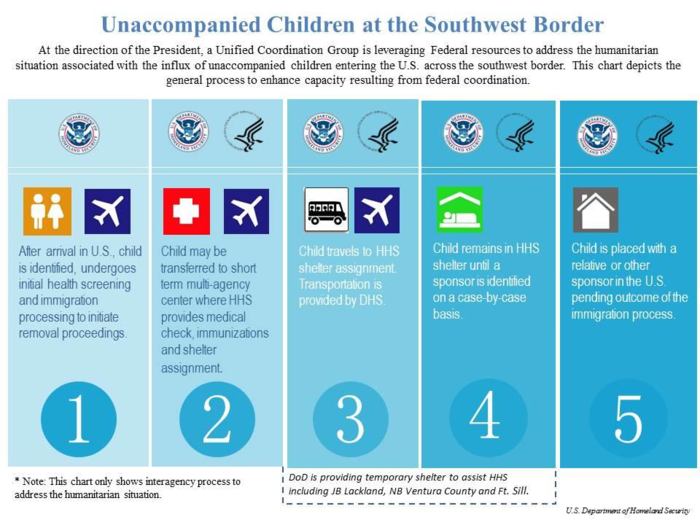
When unaccompanied minors arrive at the US border, the border protection office detains them, then passes them to the Office of Refugee Resettlement (ORR) within 72 hours.
The average stay for a child in a shelter has been 56 days in 2018, during which time the child is assigned a case worker who will search for and approve an adult, American sponsor.
The refugee-resettlement office looks to place children in a protective environment while they are being processed and generally turns to a network of state-licensed, agency-funded care providers.
Where do the children go?
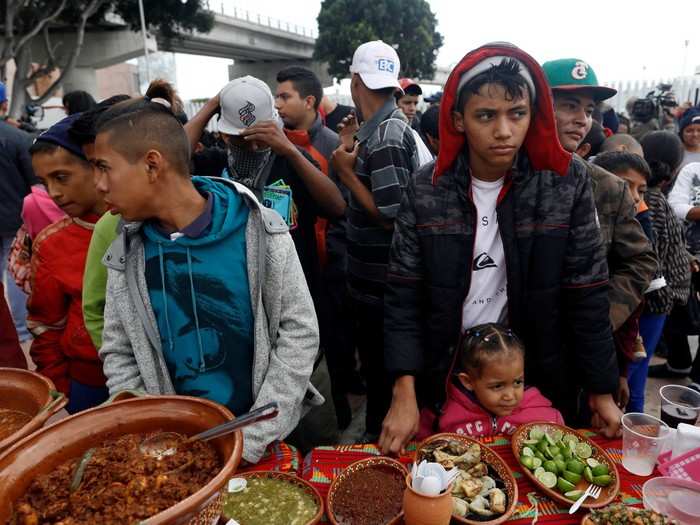
Once they are in custody, the refugee-resettlement office seeks to place the children in a fit home as quickly as possible — preferably with an immediate relative or guardian, but otherwise with a legal adult the office would investigate and approve.
Wagner said that in 2018, 90% of children were released to individual sponsors, 41% of whom were parents, 47% were close relatives, and 11% were of another relationship.
Sponsors can be:
A parent A legal guardian An adult relative An adult individual or entity designated by the child’s parent or legal guardian A licensed program willing to accept legal custody An adult or entity approved by ORRNo matter the relationship, the sponsor must agree to ensure that the child attends immigration court. Case managers interview, fingerprint, and background check sponsors, among other measures.
A case manager tries to contact the sponsor and child 30 days after release, the process that can fall through for various reasons, including that the children or sponsors don't want to be found for fear of being deported. The 1,500 "lost" children were ones whose sponsors didn't answer the phone when ORR called to check in.
In his testimony, Wagner said the office has not been legally responsible for these children after release, but is "taking a fresh look" at its policies and legal responsibilities.
How do people become sponsors for unaccompanied children?
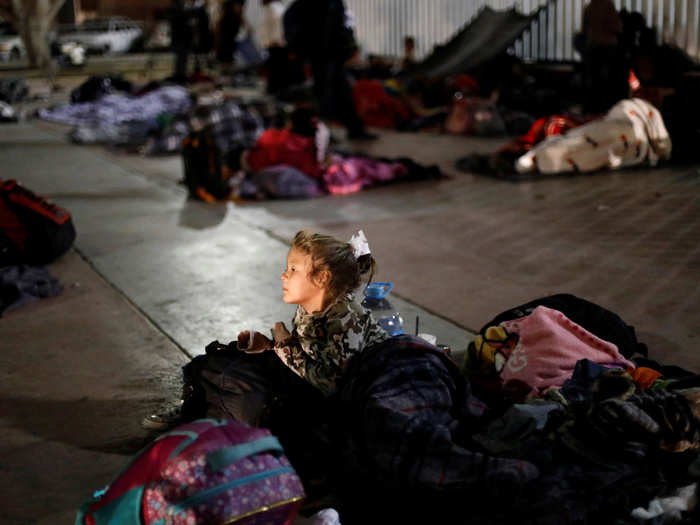
Qualifying to be considered as a sponsor is just the beginning of the placement process.
In his testimony, Wagner detailed several measures the agency had made to improve its sponsor assessment process, which compels case managers to verify the sponsor's relationship to the child and ensure they can provide a safe and healthy environment through:
Interviewing prospective sponsors Conducting background checks of prospective sponsors Checking fingerprints of non-parental or at-risk parental sponsors with an FBI database Requiring prospective sponsors to sign a Sponsor Care AgreementSince 2016, the office has refined its guidelines for sponsor approval to increasingly "help to protect children from traffickers, smugglers, and others who may wish to do them harm."
What happens when children arrive at the US border with their families?
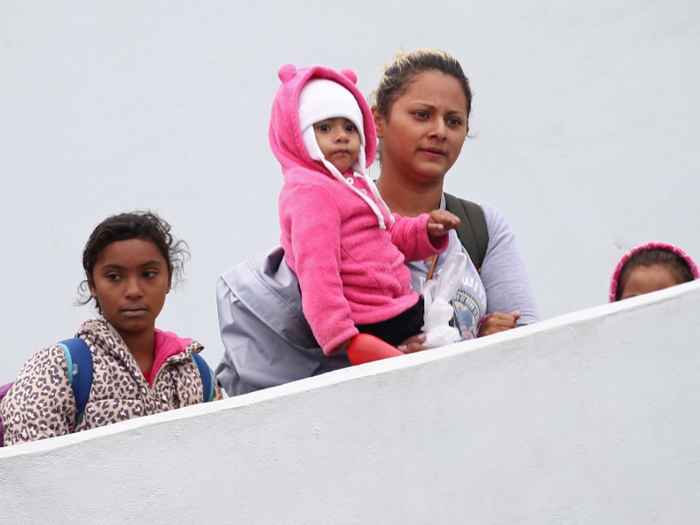
If a family is caught crossing the border illegally, each individual would be criminally prosecuted and any children would be separated from the family, according to a "zero-tolerance" the Justice Department unveiled last month.
This is the policy that many of Trump's critics decried over the weekend, arguing it was inhumane to take small children away from their parents.
Since children cannot be tried or jailed as adults, they are transferred to government detention facilities as the legal case for their family moves forward.
How are Trump's policies are different from past administrations'?
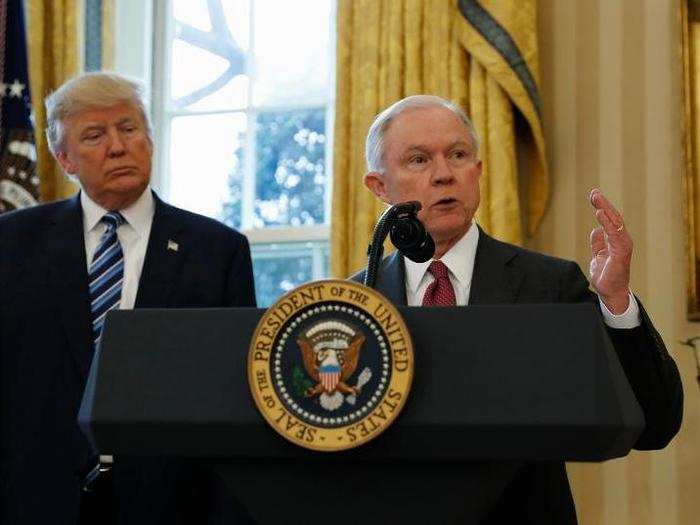
Thomas Homan, acting director of the Immigration and Customs Enforcement agency, said at the announcement of the "zero-tolerance" policy, that DHS has "always separated families" under two conditions:
If officials cannot tell the adult is a parent and the child is being trafficked If adult individuals are being prosecutedPast administrations would often just deport immigrants who entered the country illegally instead of detaining them.
The Trump administration's policies have drawn widespread criticism, and Obama administration officials pushed back on claims that Democrats are responsible for the policy.
"This policy is new, cruel, and unprecedented," Jon Favreau, who worked as a speechwriter for former President Barack Obama, tweeted. "It was not an Obama policy. It was not a Bush policy. It was not a Clinton policy. That is a fact. And that is what all of us — Democrats and Republicans — should want changed as soon as humanly possible."
When NPR asked White House Chief of Staff John Kelly about the "cruel and heartless" separation of children from their parents on May 11, he dismissed any wrongdoing, saying the children would be "put into foster care or whatever."
When Attorney General Jeff Sessions announced the policy on May 7, his warning was clear: "If you are smuggling a child, then we will prosecute you and that child will be separated from you as required by law. If you don't like that, then don't smuggle children over our border."
Popular Right Now
Popular Keywords
Advertisement